Researching?
If you’re going to write historical fiction, it helps to enjoy doing research, which I really do! This past weekend, I set out on a fun weekend with my husband, not intending for it to be a research trip. But since I can’t seem to stop looking for insights and tidbits to add to my stories, it ended up being a little bit of a research trip after all.
My husband Ken has been a car buff for as long as I’ve known him, which is more than 50 years. A few years ago, he joined The Vintage Car Club of Holland through friends of ours who own a Model A Ford. Our “not-quite-vintage-yet” car is a 2003 Mazda Miata, which still runs great at nearly 20 years old. This weekend, the car club reserved a tour bus, and about 50 of us visited several car collections, some of them private, and others, like the fantastic Stahls Automotive Collection in Chesterfield, Michigan, that were open to the public. Of course, we also laughed and dined like kings and stayed overnight in a great hotel, so all of that would have made it a fun trip. But I also learned a couple of things along the way.

First, I saw how passionate vintage car collectors are! Their enthusiasm for taking a rusted-out hulk and transforming it into a show-worthy car was inspiring. Restoring vintage cars can be a very expensive and time-consuming hobby, yet apparently addictive. Not one of the collectors wanted to stop after restoring one car. And the results were simply beautiful. Plus, they are capturing an important piece of history that shouldn’t be forgotten.

That’s the second thing I learned—a little bit about the history of the car industry. Everyone knows Henry Ford, of course, but there were many others who contributed wonderful innovations. I noticed that the earliest cars looked like carriages without the horses, hence the name “horseless carriages.”
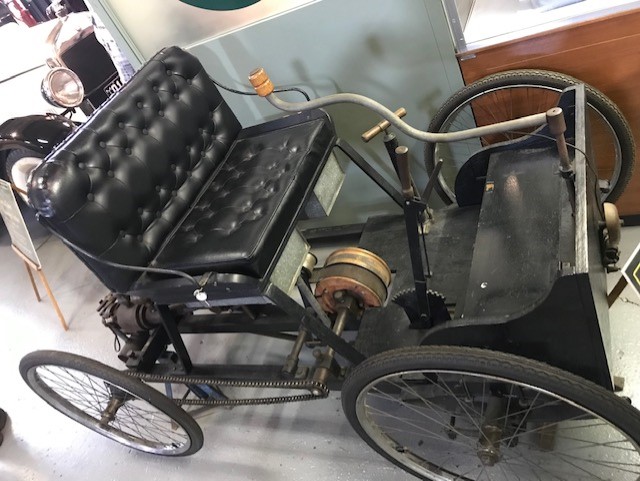
We might still be riding in those bulky contraptions if not for engineers and designers who figured out how to streamline cars and make them more beautiful. And faster, much to the delight of Ken and his fellow Nascar fans.
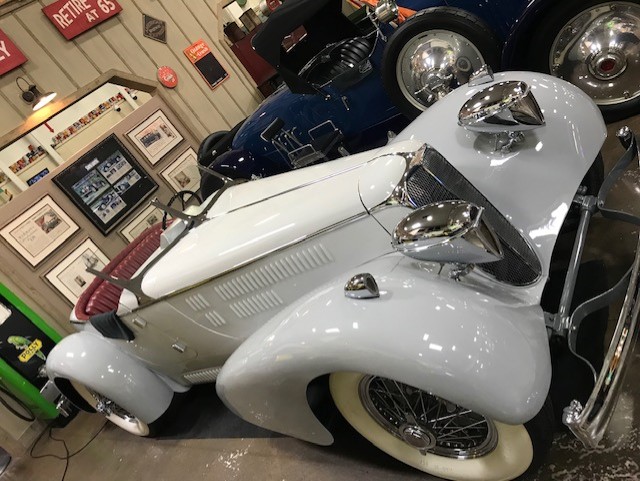
Have you ever heard the expression “that’s a doozy!” Well, another thing I learned was that the expression came into use because of this car, a Duesenberg. It was such an exceptionally beautiful vehicle in its day that people would see it and remark, “That’s a Duesey!” (I love fun facts about our language!)

I enjoyed looking at all of these beautiful antique cars and imagining the characters in my books driving around in them. The novel I’m currently writing takes place in the Gilded Age when cars were just coming into use, so the timing of this trip was perfect. And the last stop on our journey just happened to be at a beautiful Gilded Age mansion in Marshall, Michigan. Look at these gorgeous hand-painted ceilings and walls! And gowns! I was in research heaven!
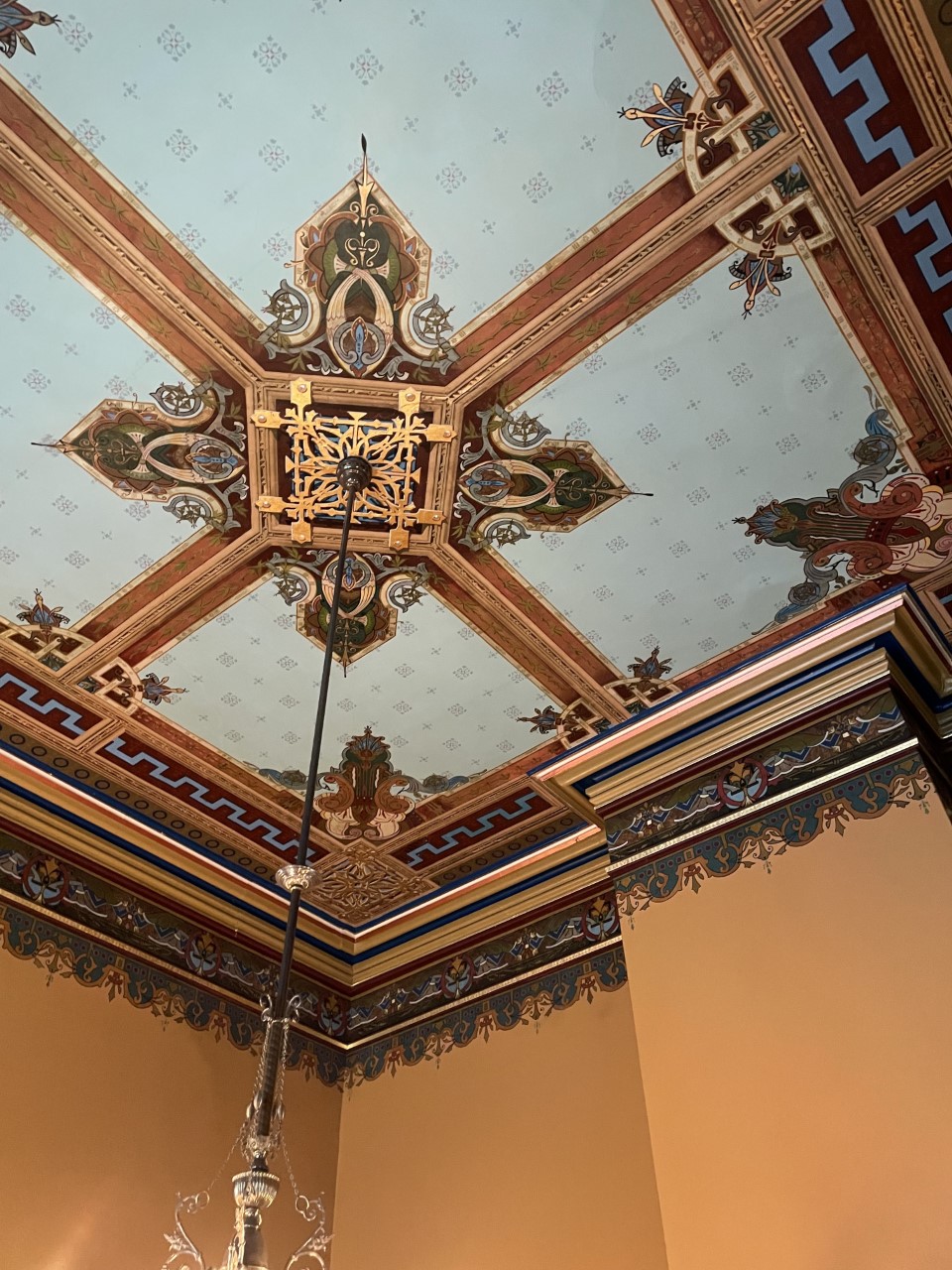
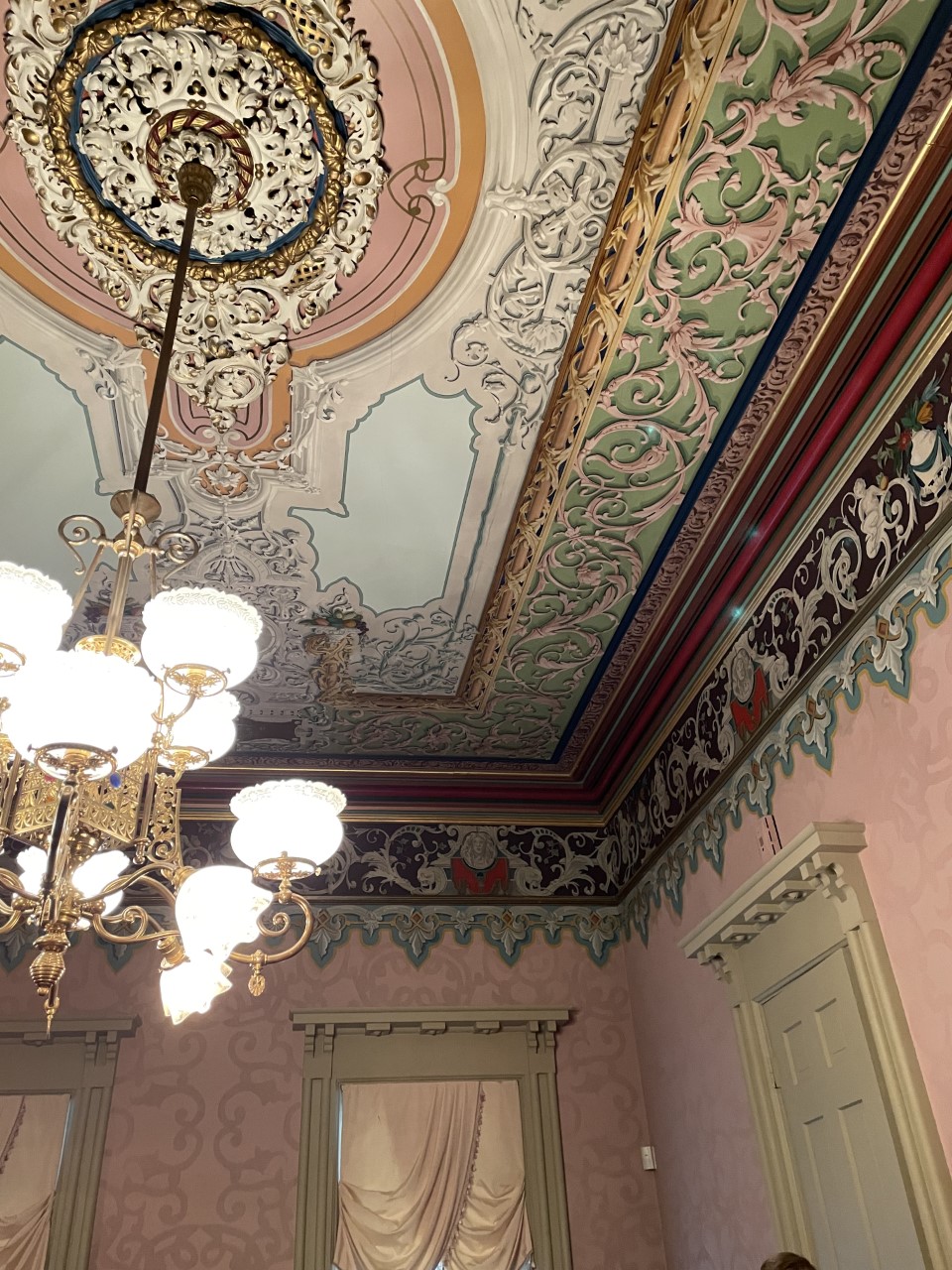
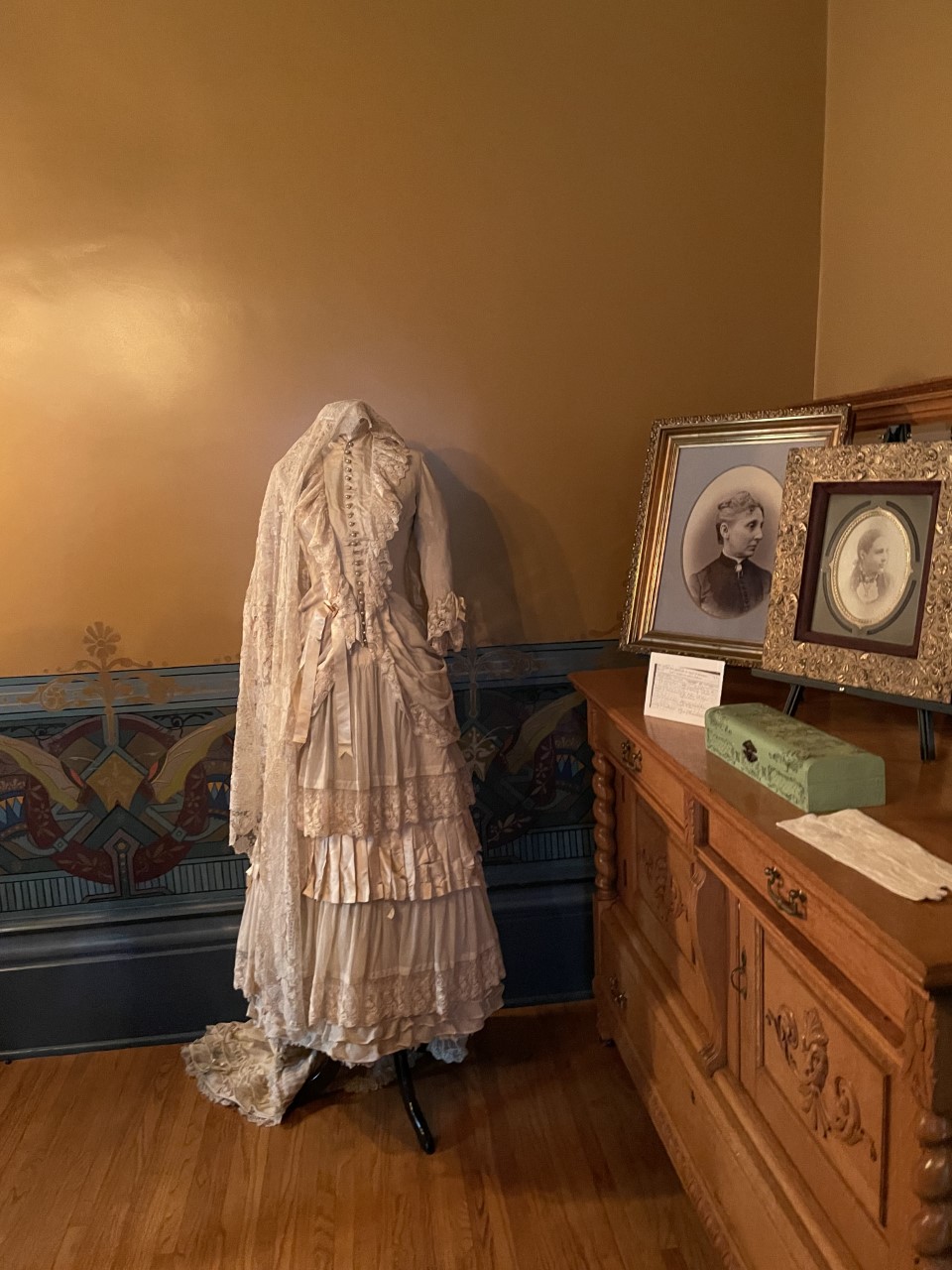
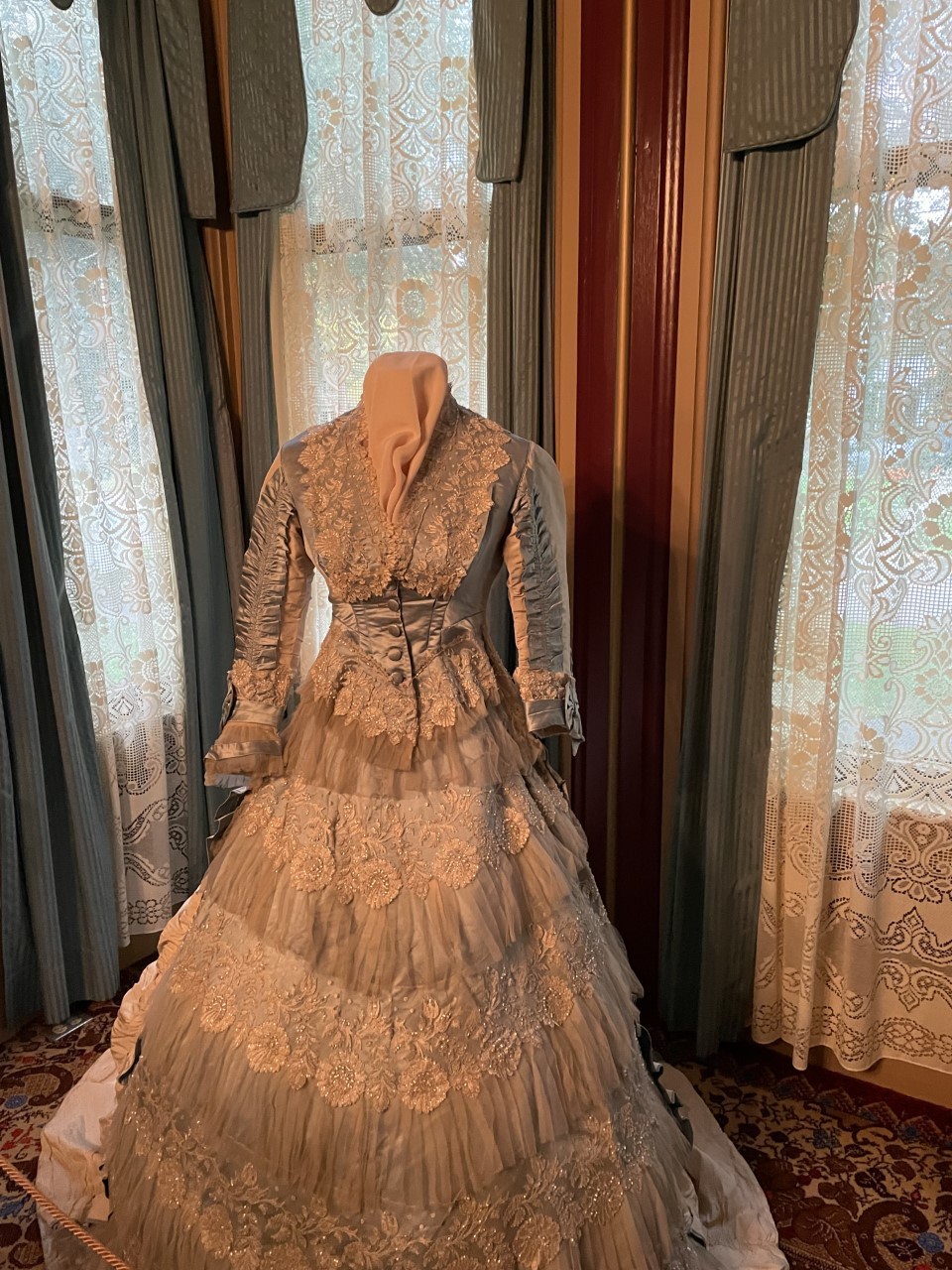
Of course, I have no idea how much of what I saw and learned will end up on the pages of my novel. Any writer will tell you that only about 10-20% of all their research ever makes it into the finished book. But our vintage car excursion has certainly helped me picture a few gorgeous settings and vehicles for when I’m creating future scenes. I hope readers will “see” them, too.
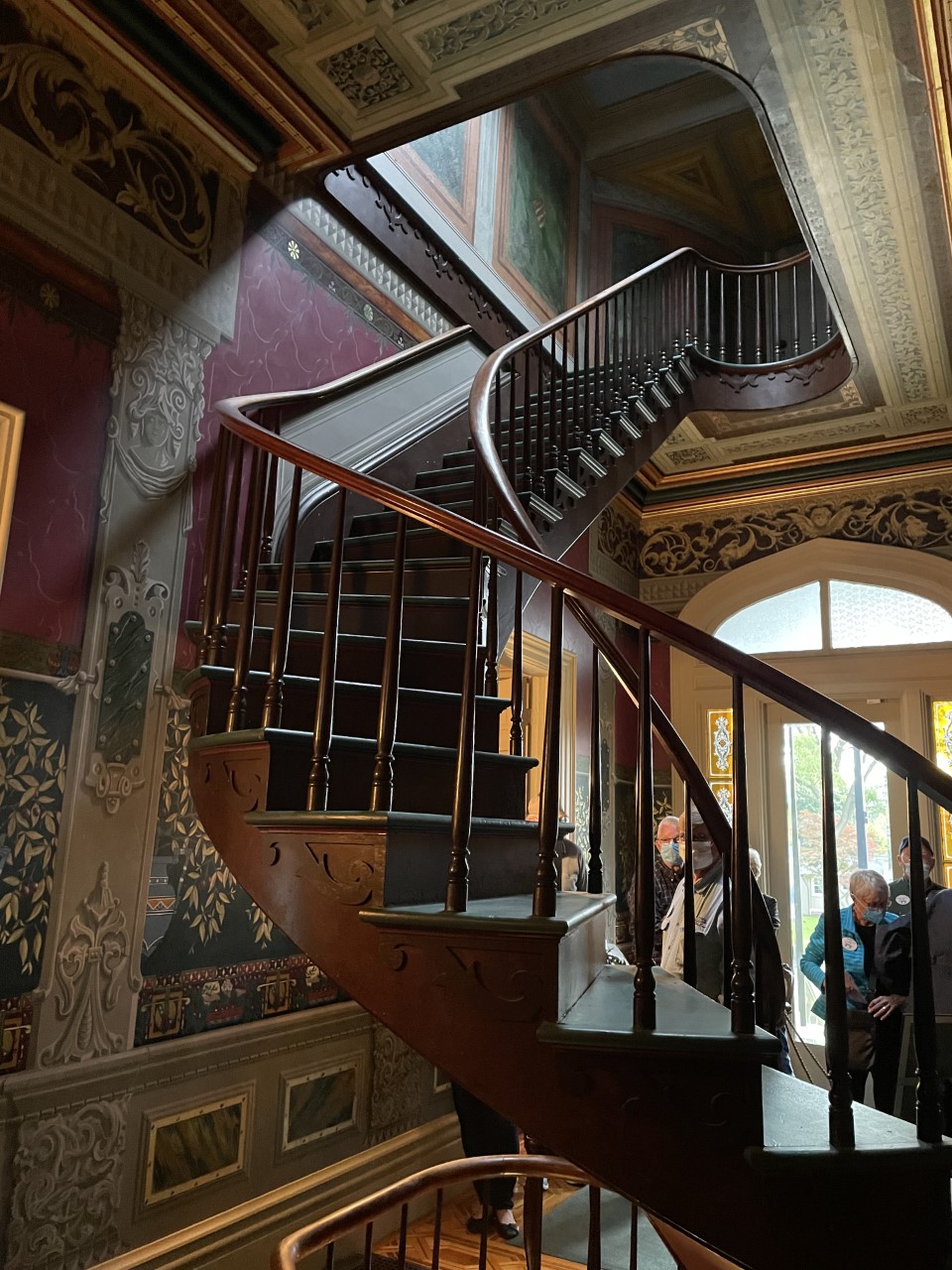
Is there a favorite time period that you enjoy traveling to through books?
- 2178
- 8
- 0



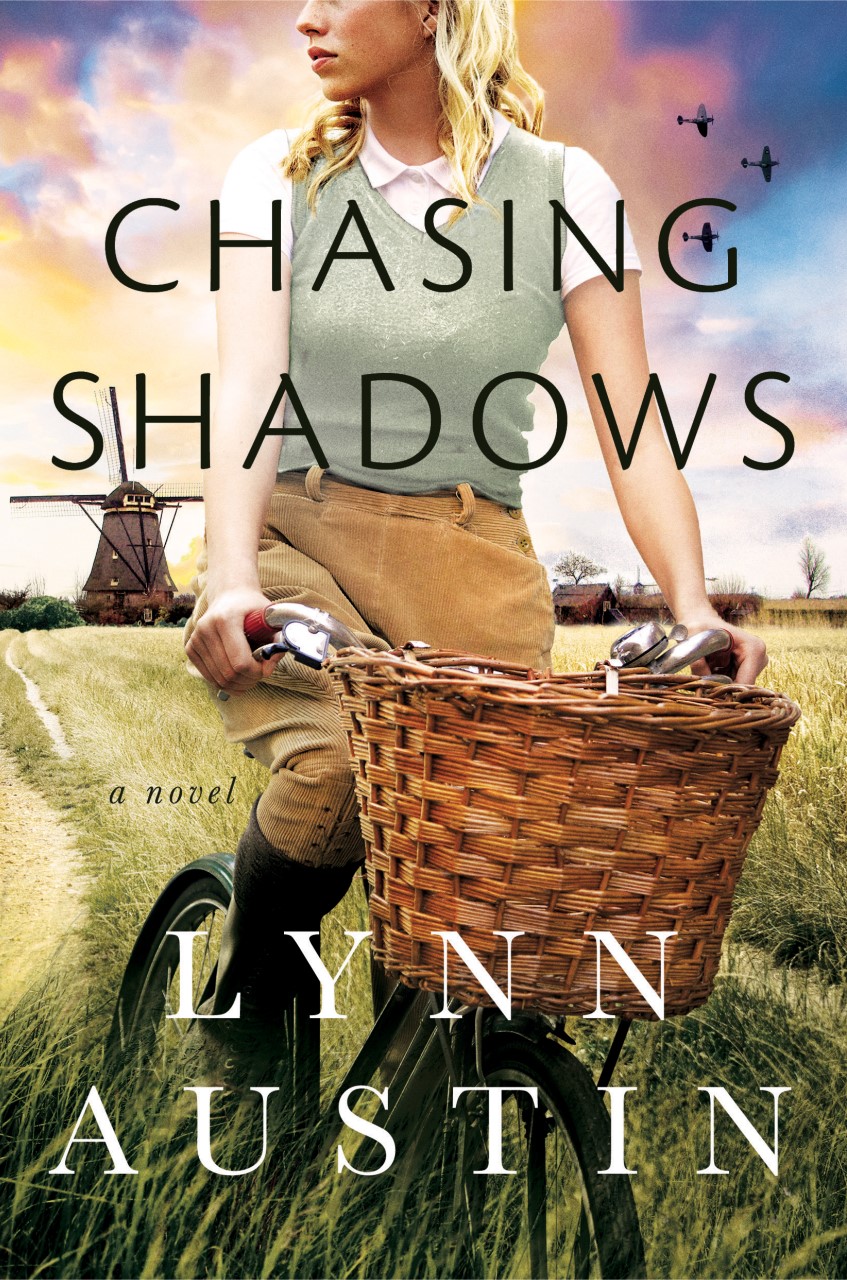

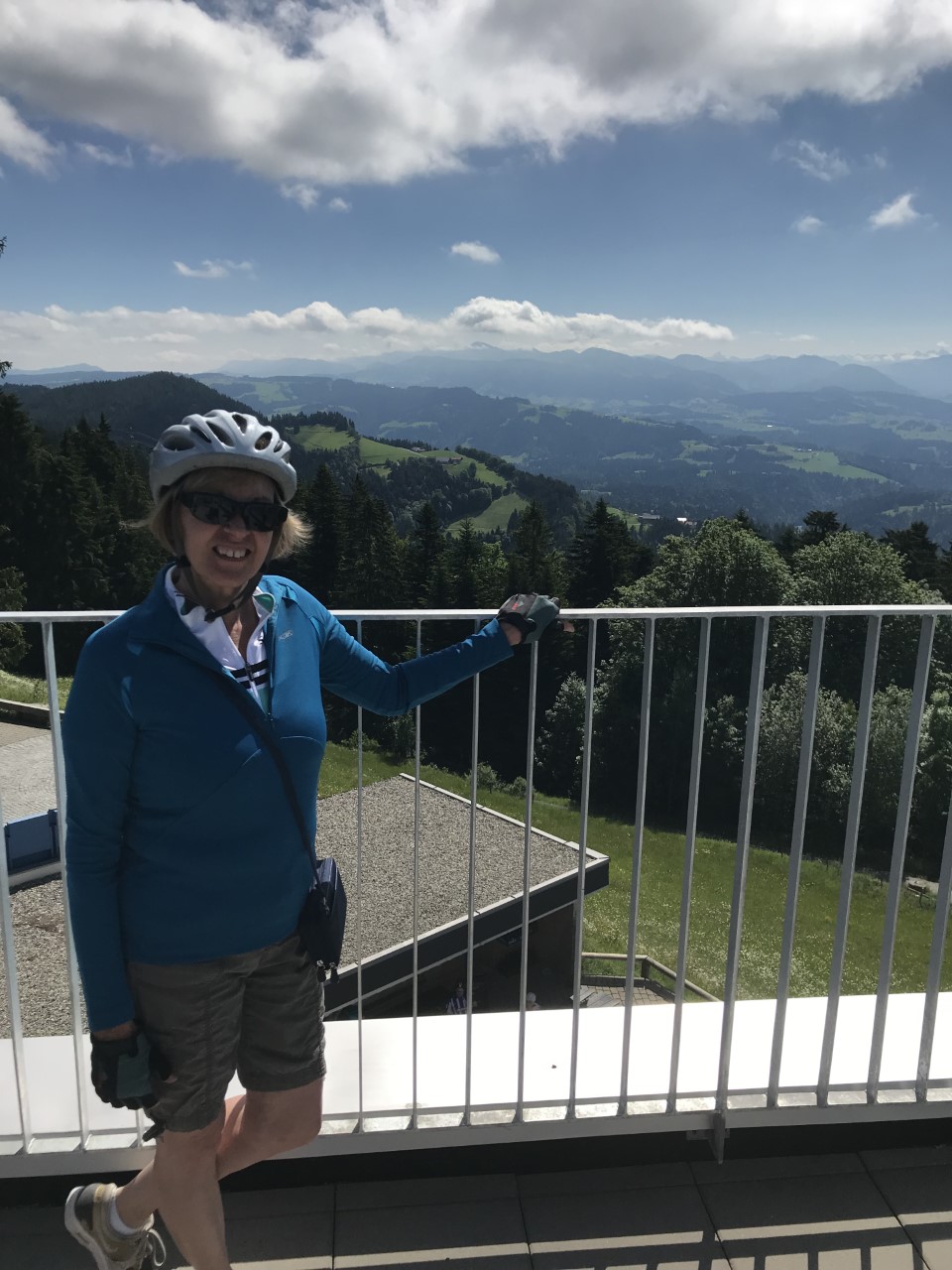

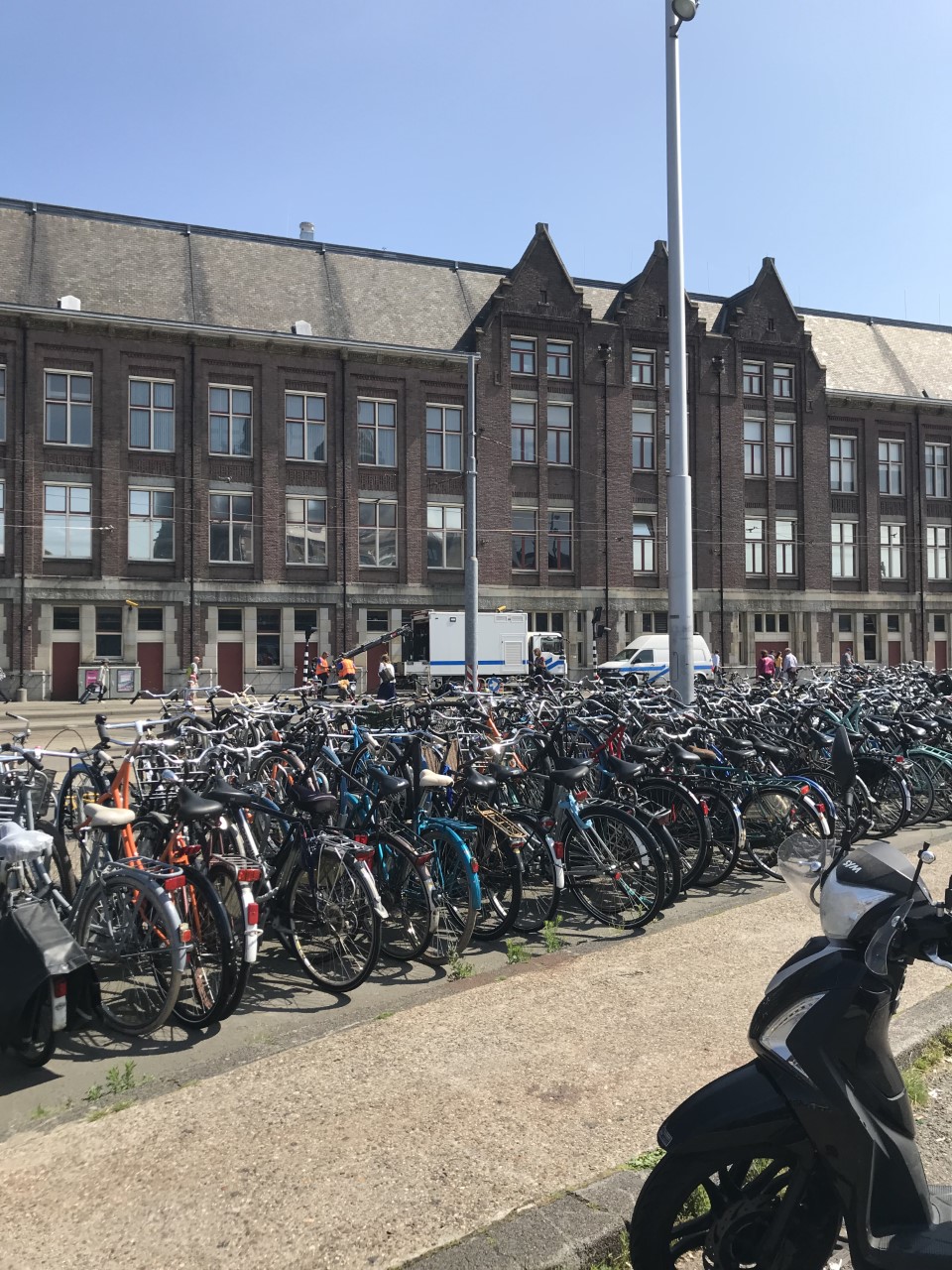
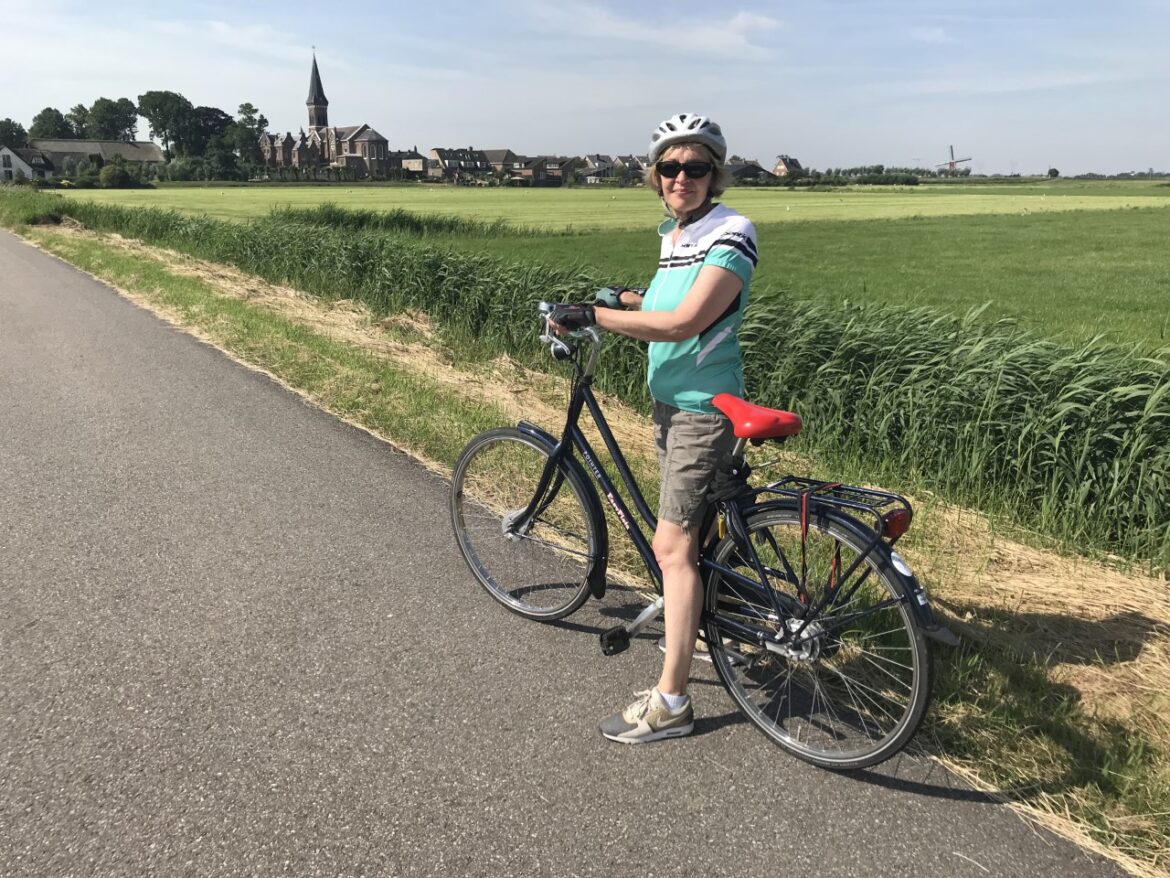
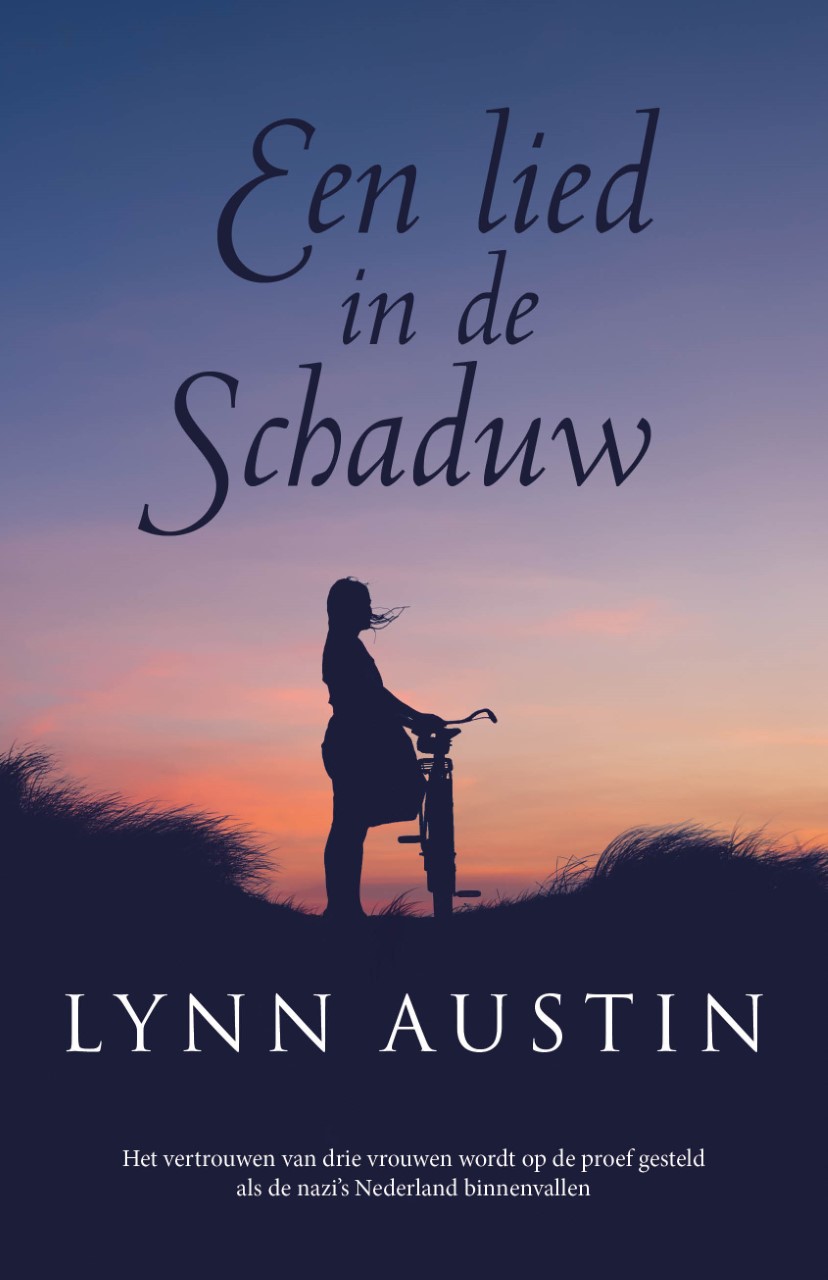




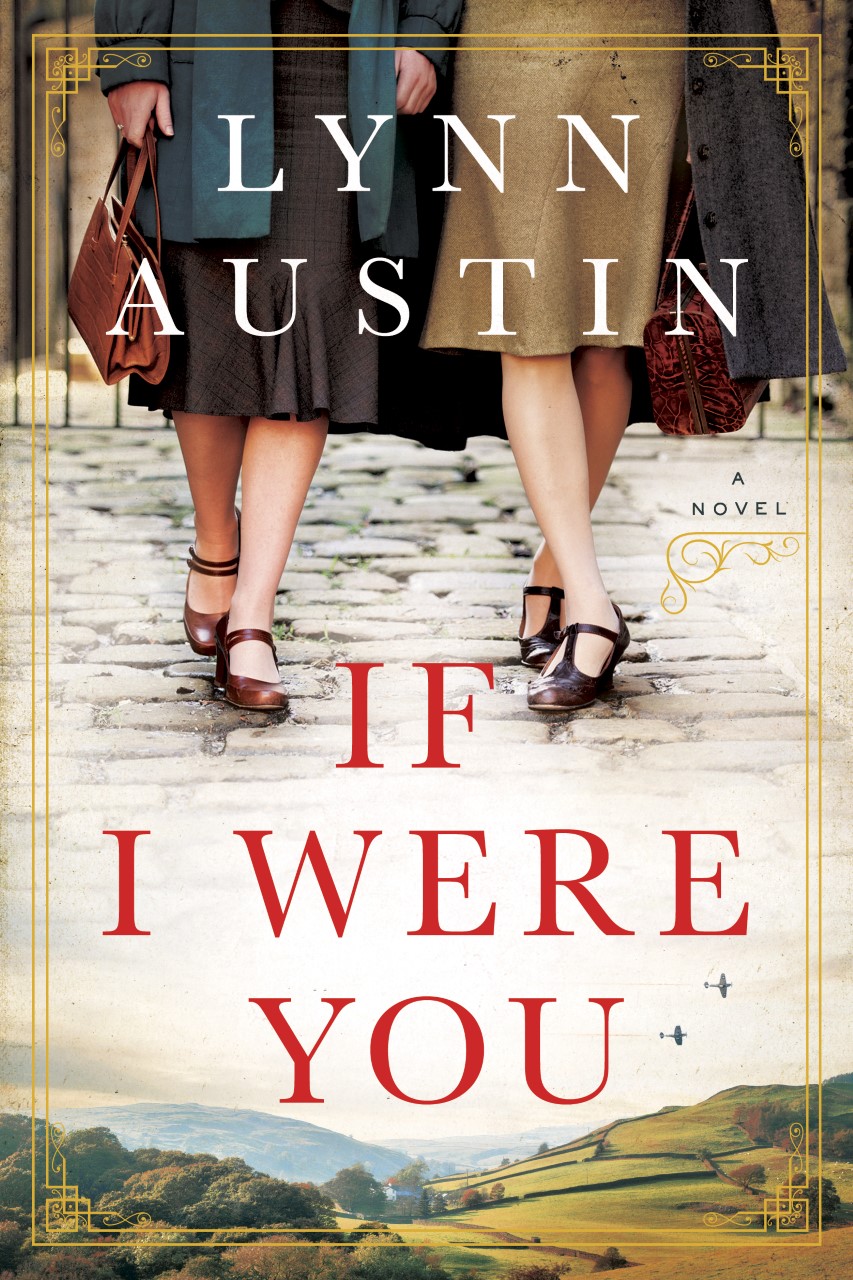

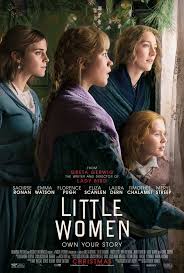


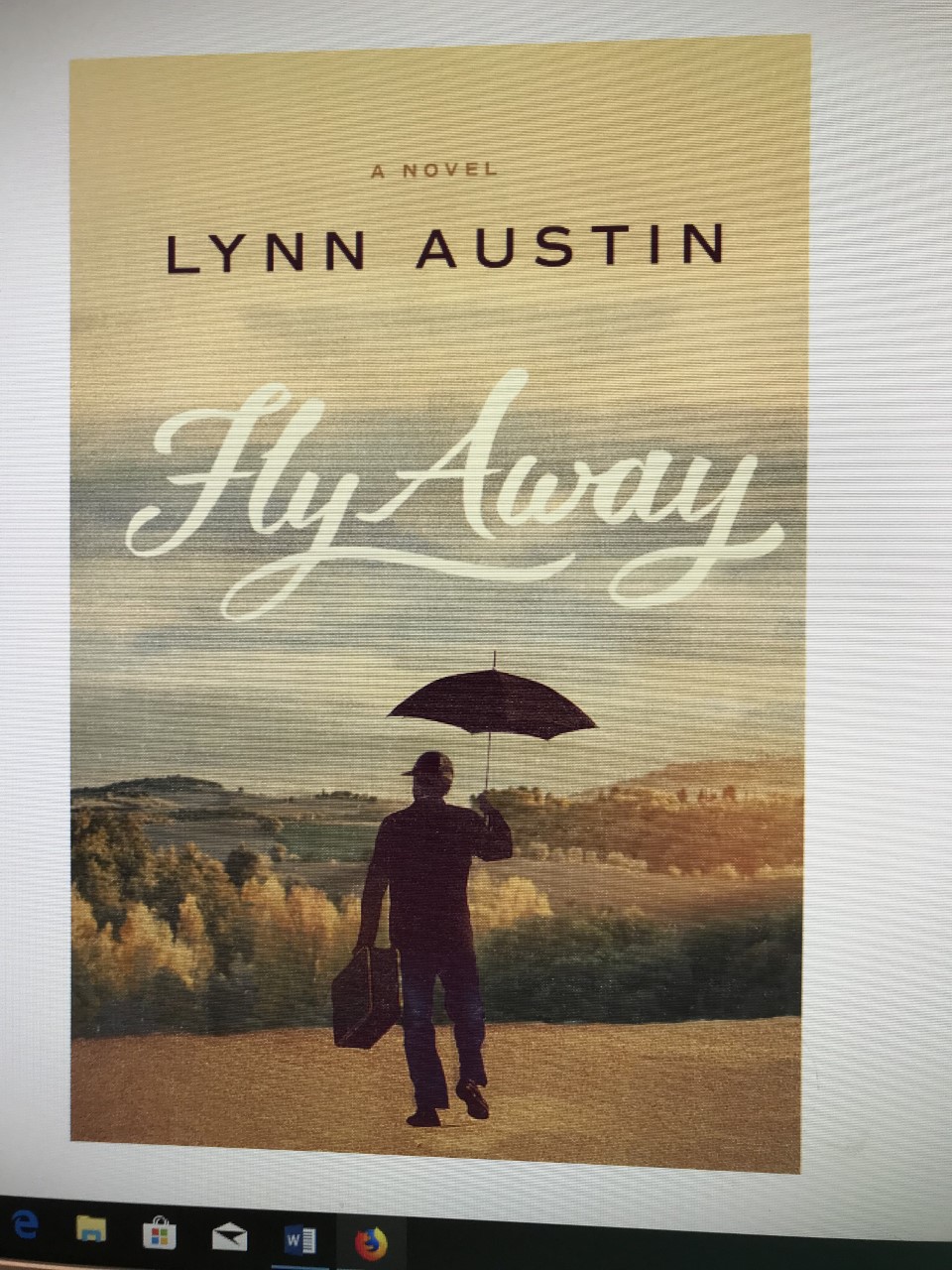

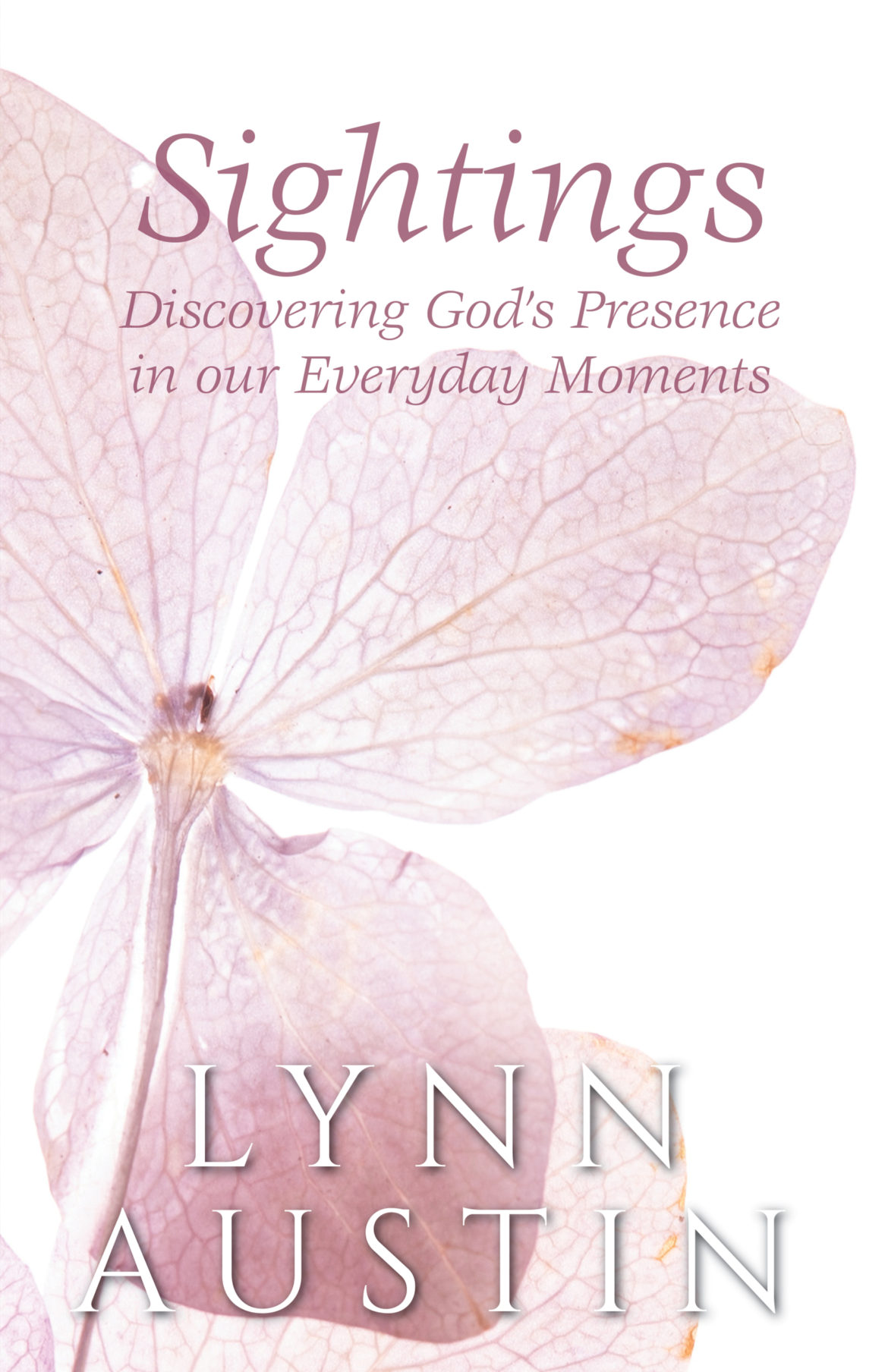
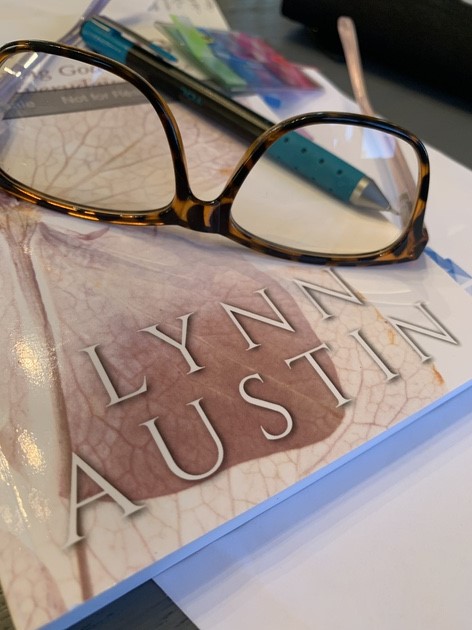

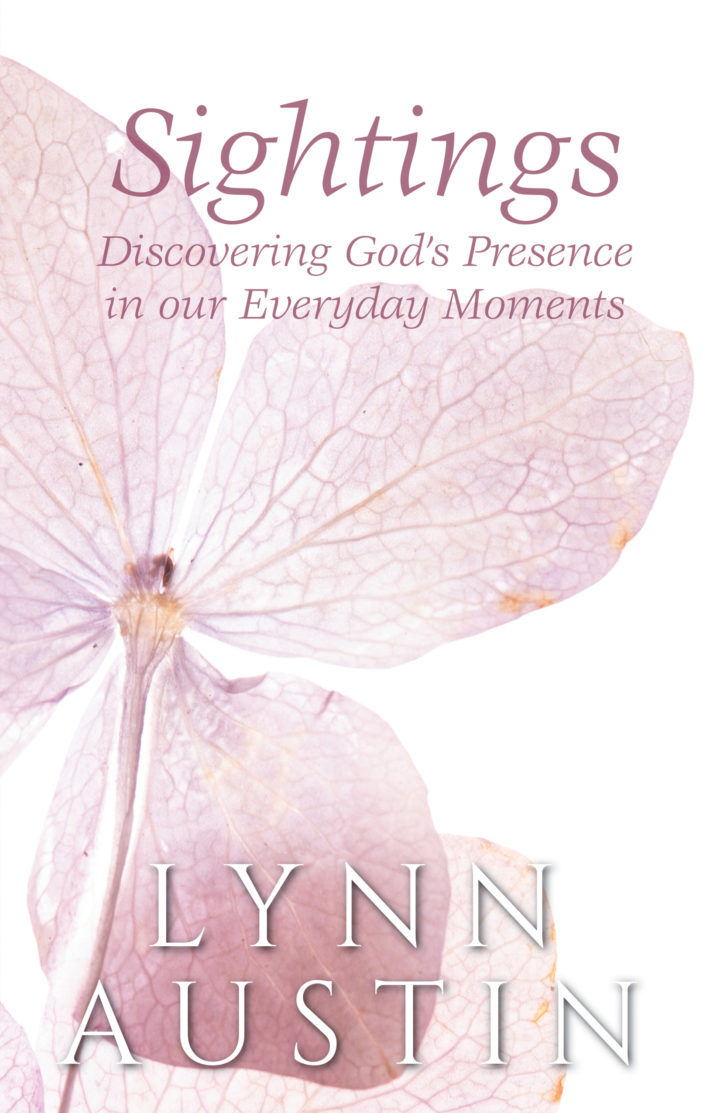


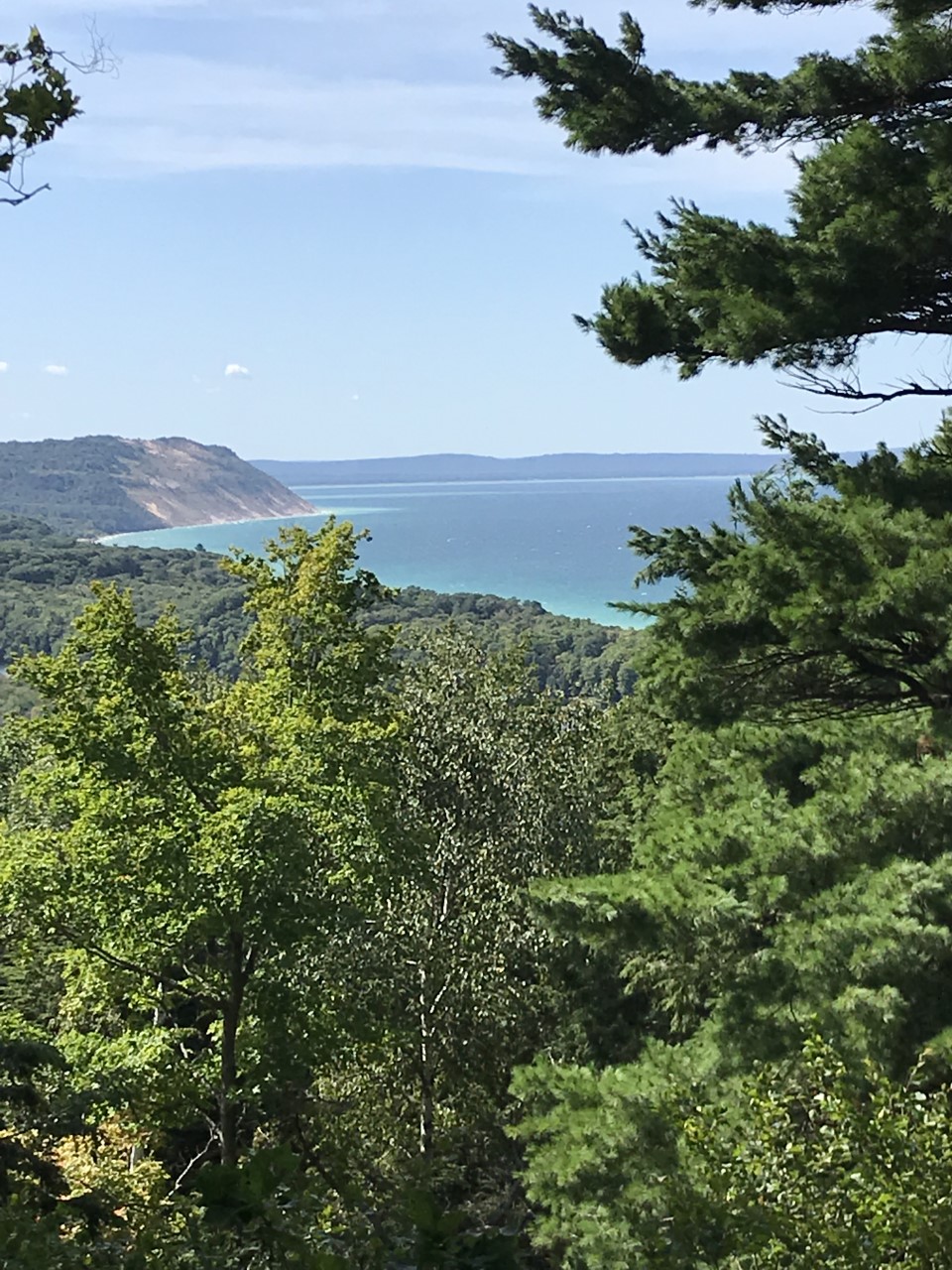
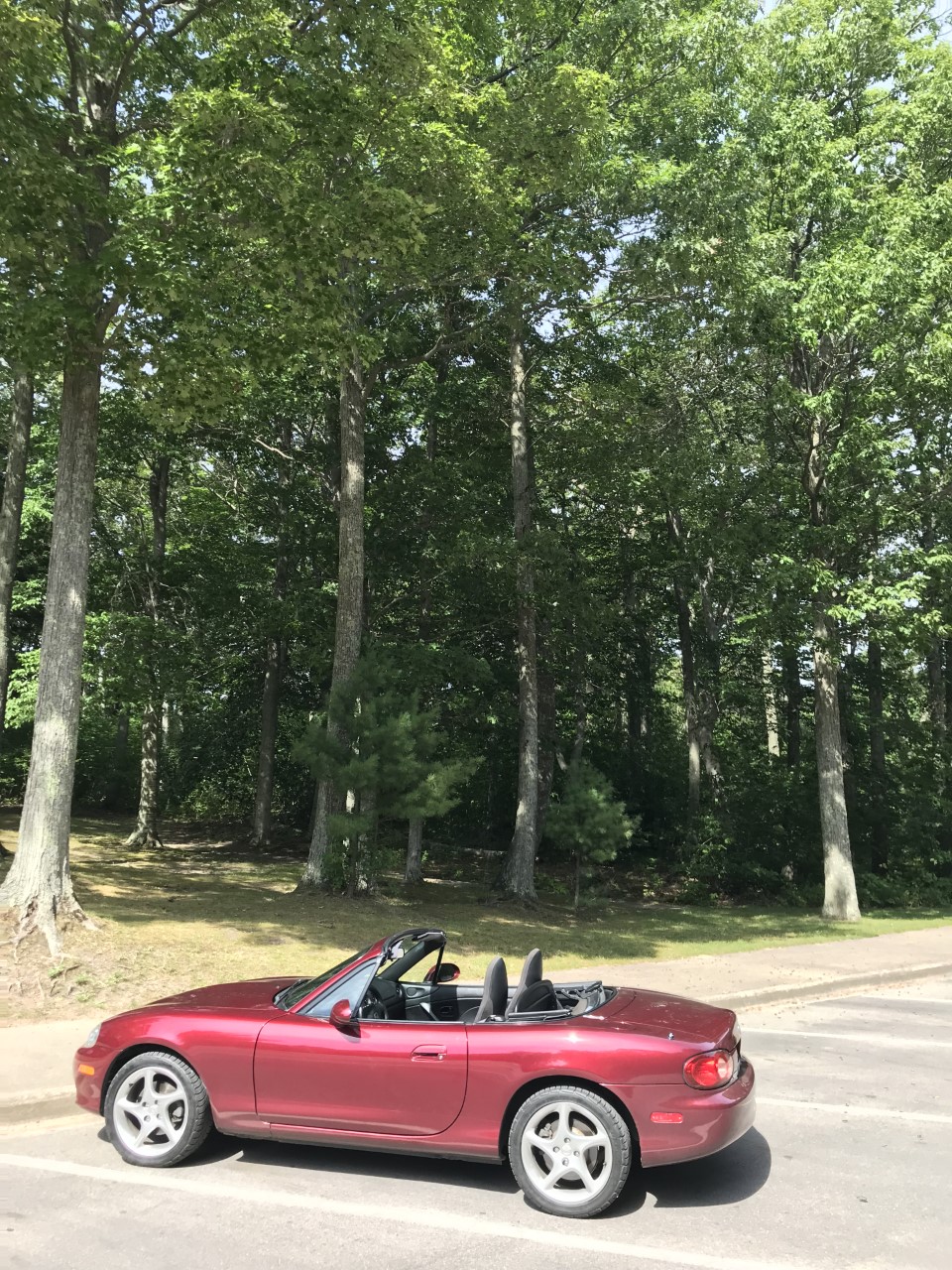
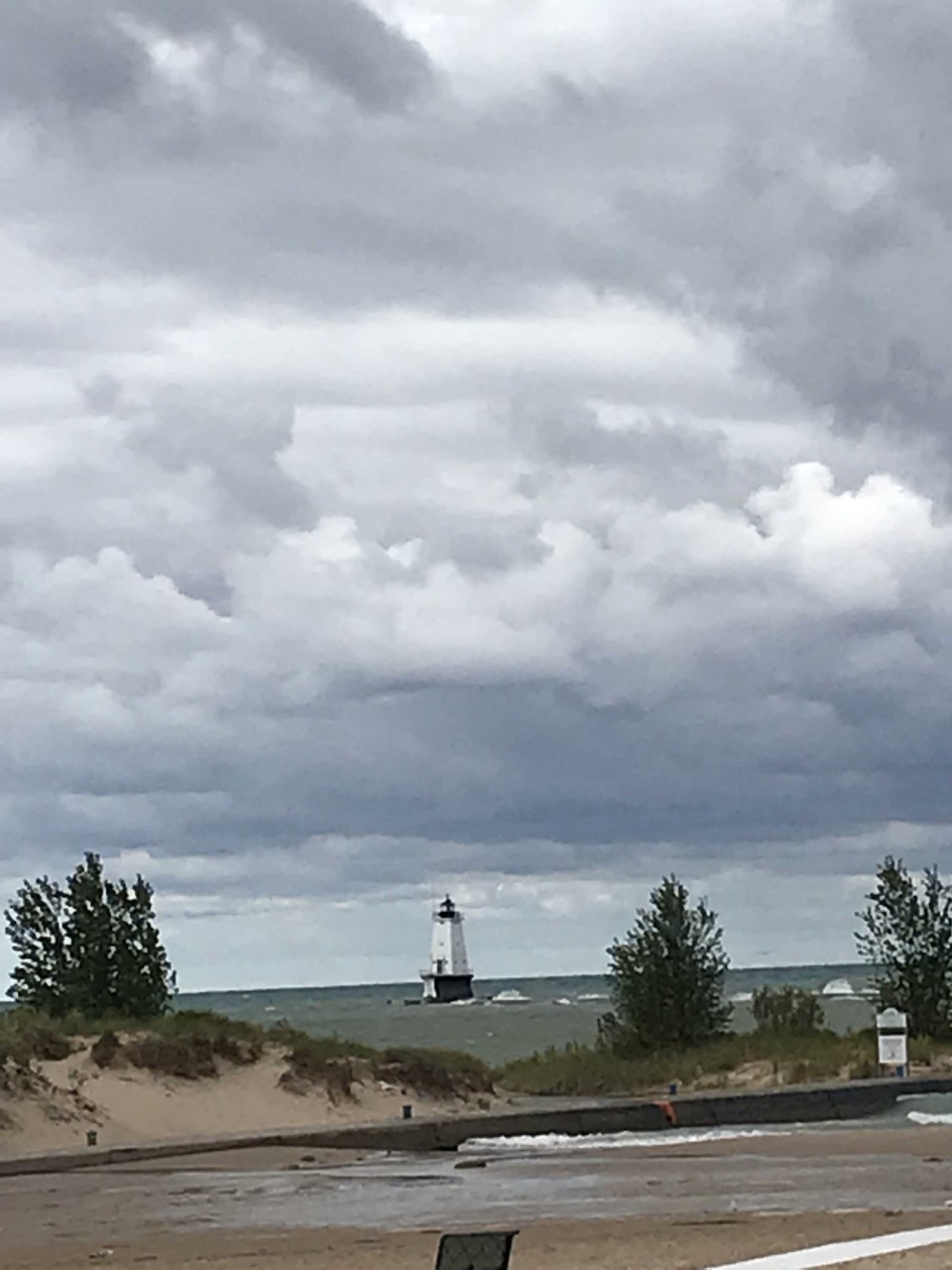
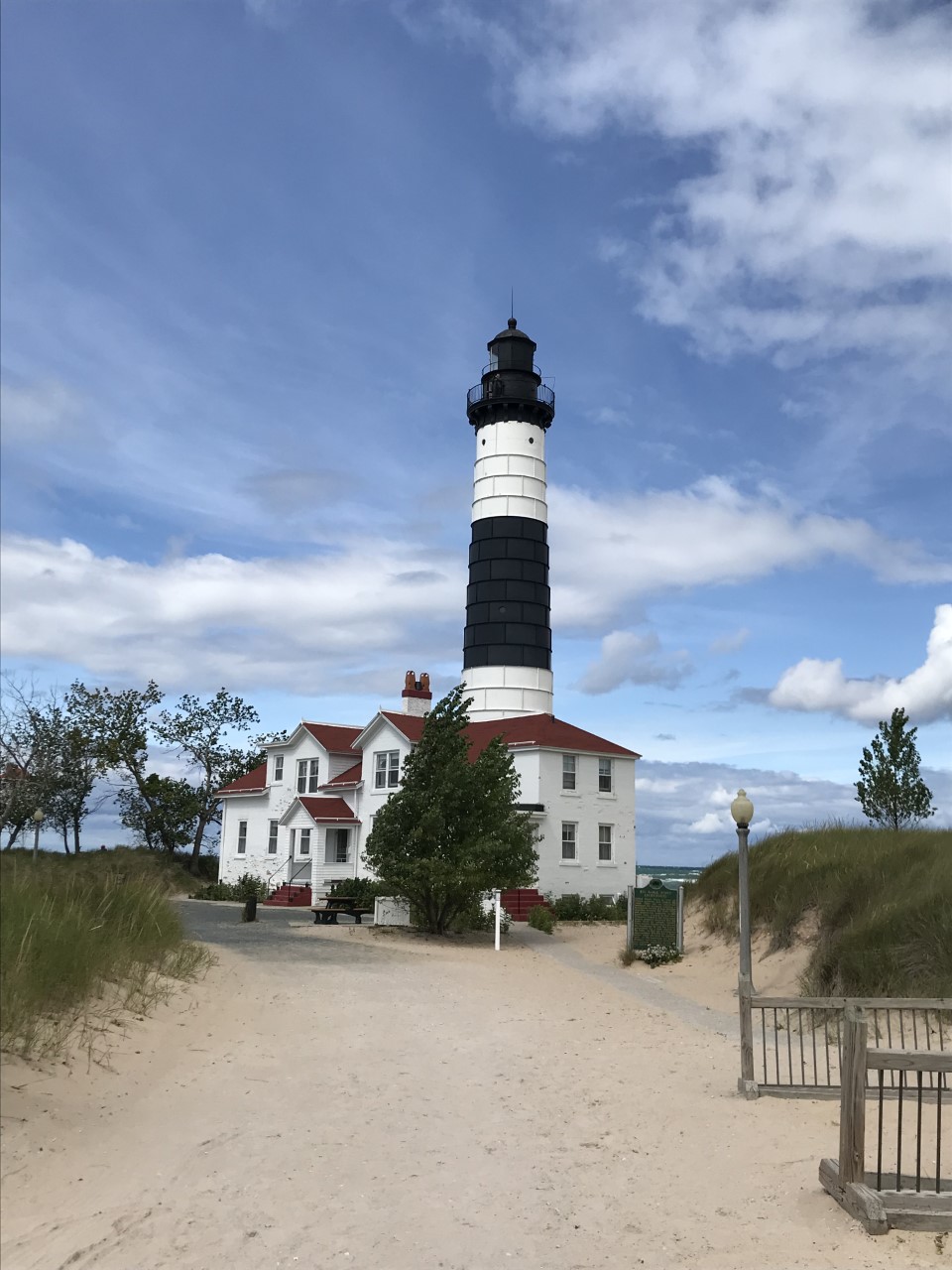
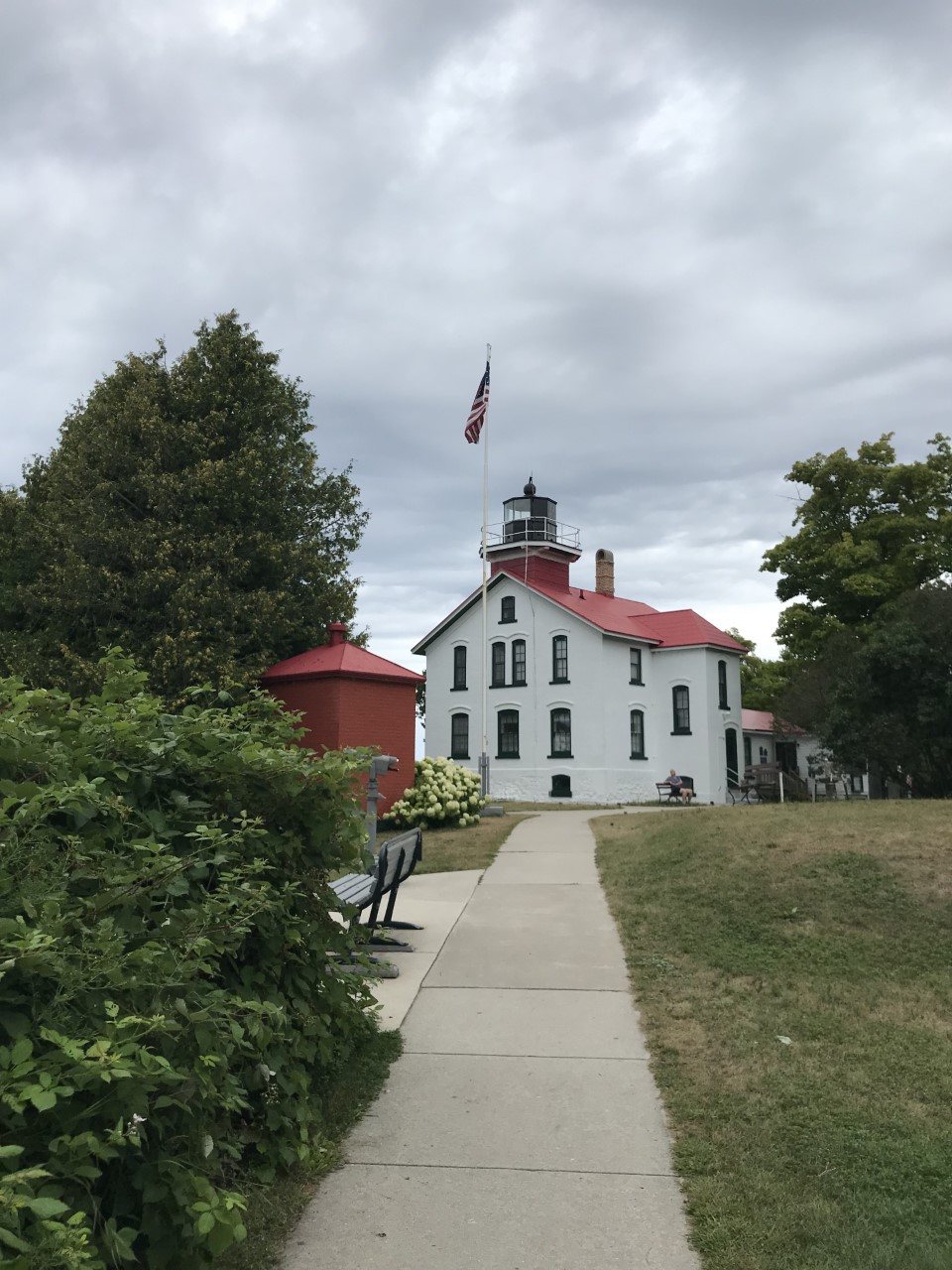
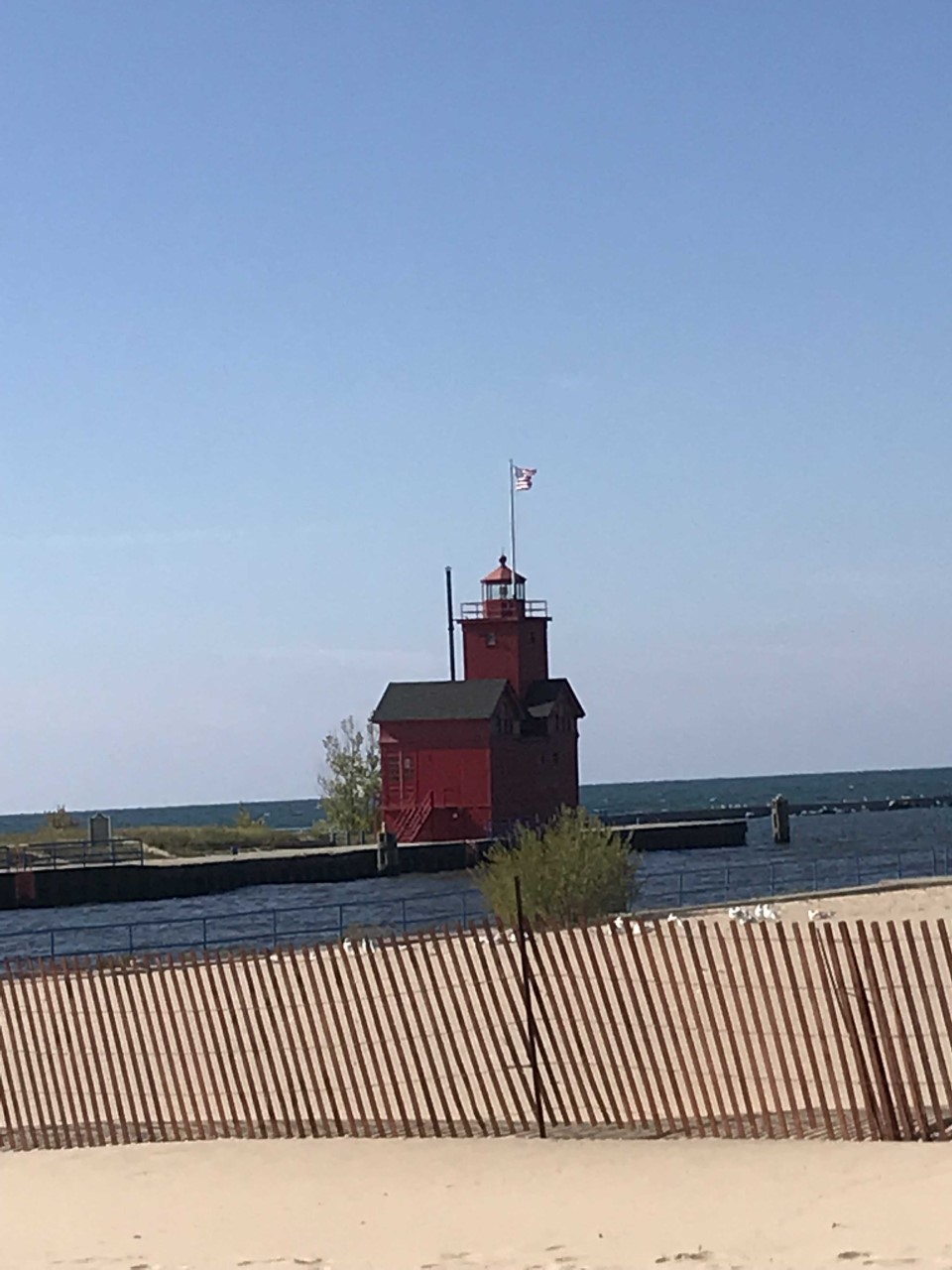
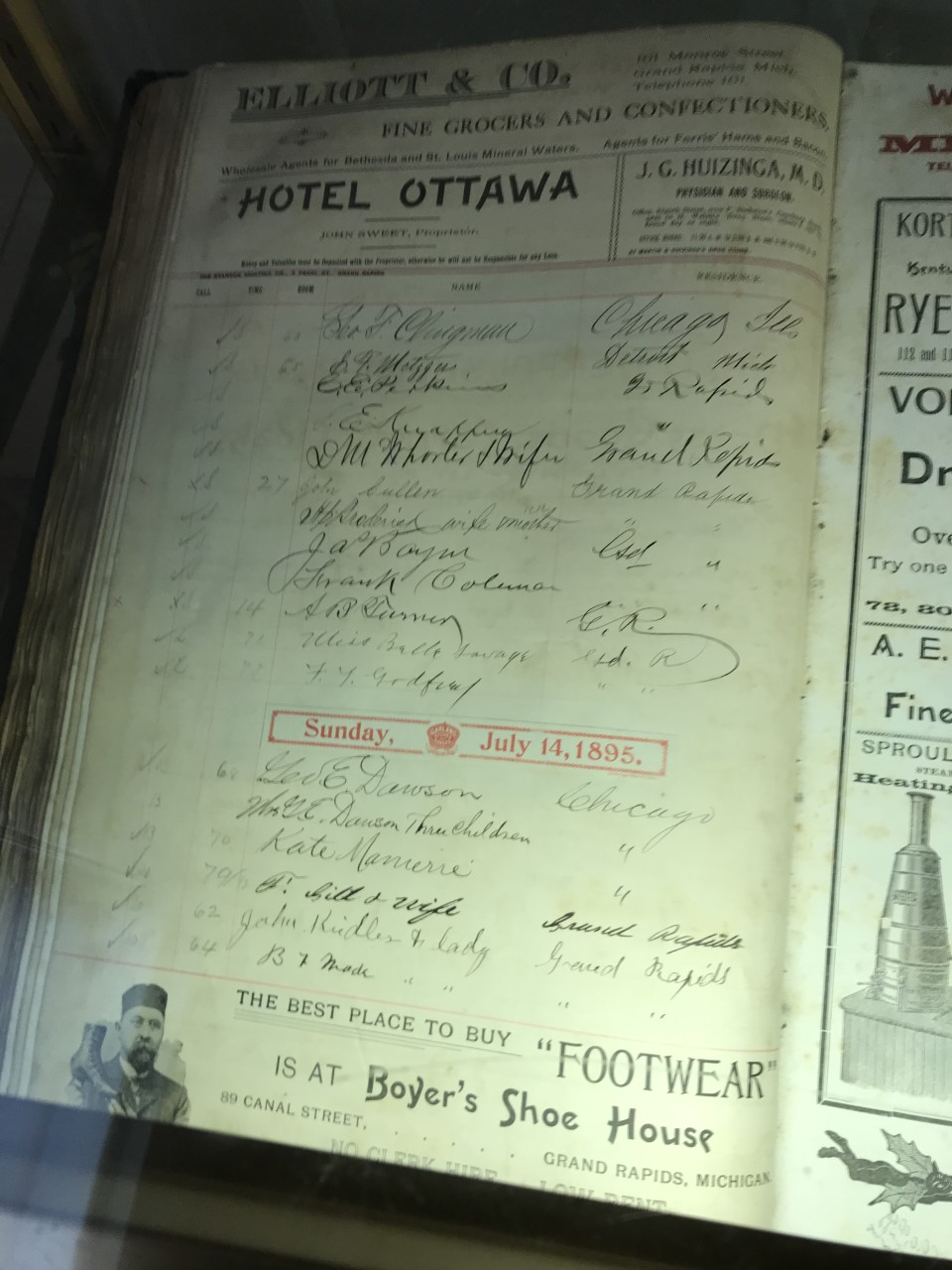
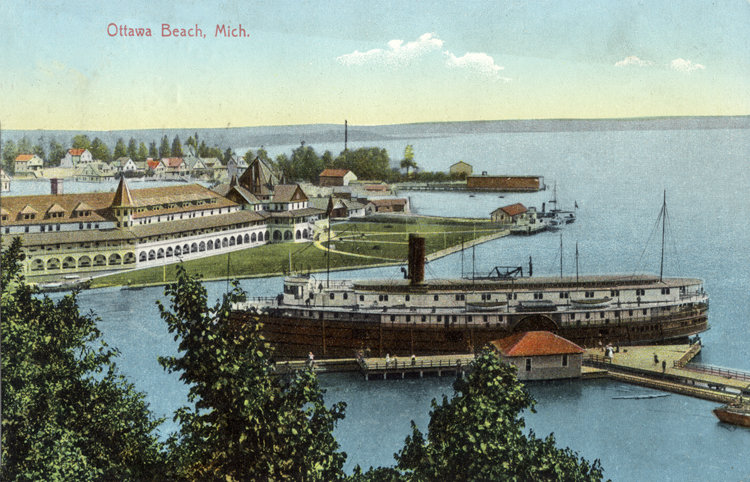 The hotel was a popular tourist destination in the late 1800s when steamships brought guests, like the heroine in my novel, across Lake Michigan from Chicago to vacation at the beach. Unfortunately, the hotel burned down in 1923 and wasn’t rebuilt. The only thing that’s left is the brick pumphouse that once generated electricity for the hotel and nearby cottages. The pumphouse is now a lovely little museum that features a display of the hotel’s guest book and other artifacts from that time period.
The hotel was a popular tourist destination in the late 1800s when steamships brought guests, like the heroine in my novel, across Lake Michigan from Chicago to vacation at the beach. Unfortunately, the hotel burned down in 1923 and wasn’t rebuilt. The only thing that’s left is the brick pumphouse that once generated electricity for the hotel and nearby cottages. The pumphouse is now a lovely little museum that features a display of the hotel’s guest book and other artifacts from that time period.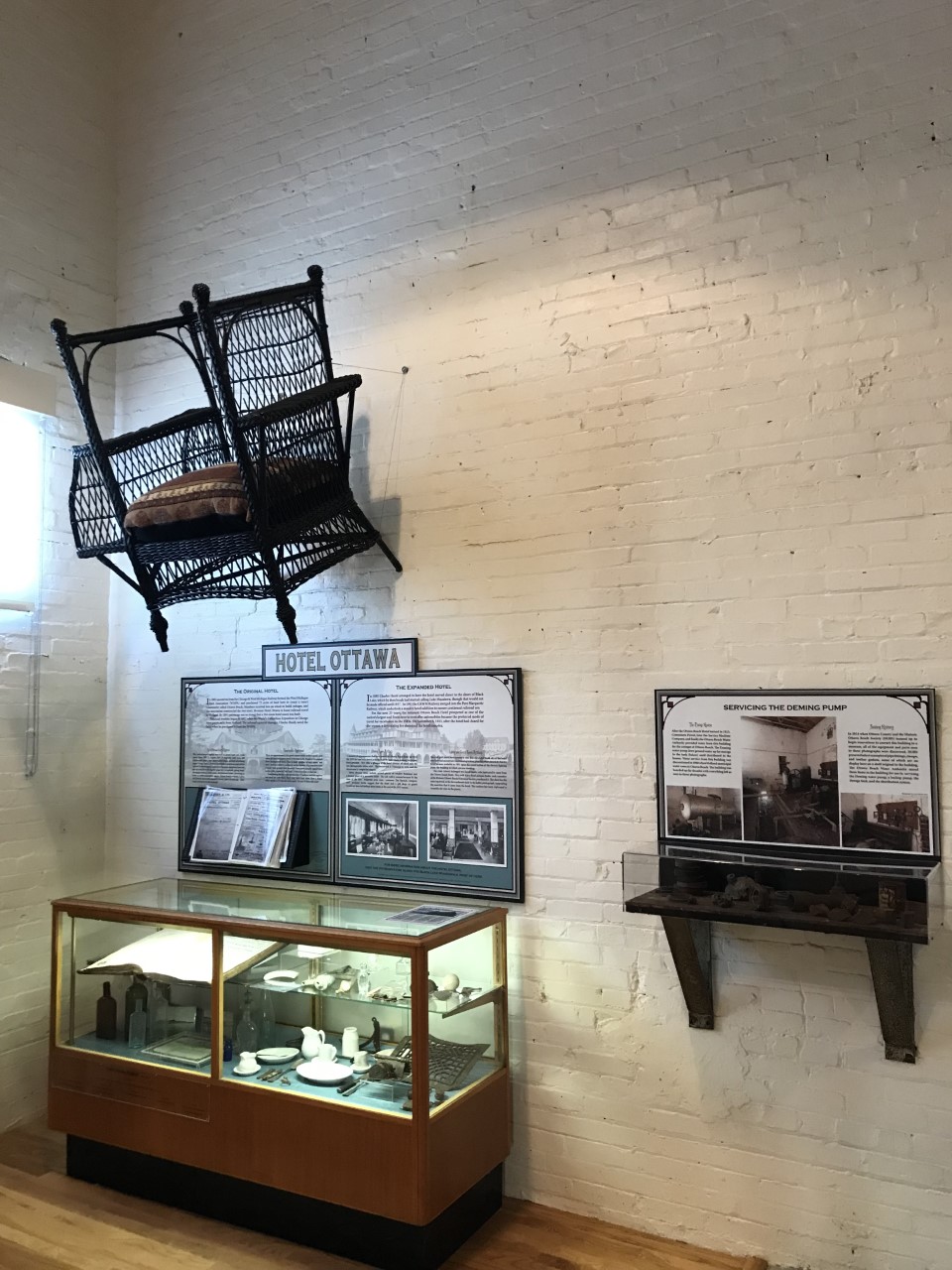
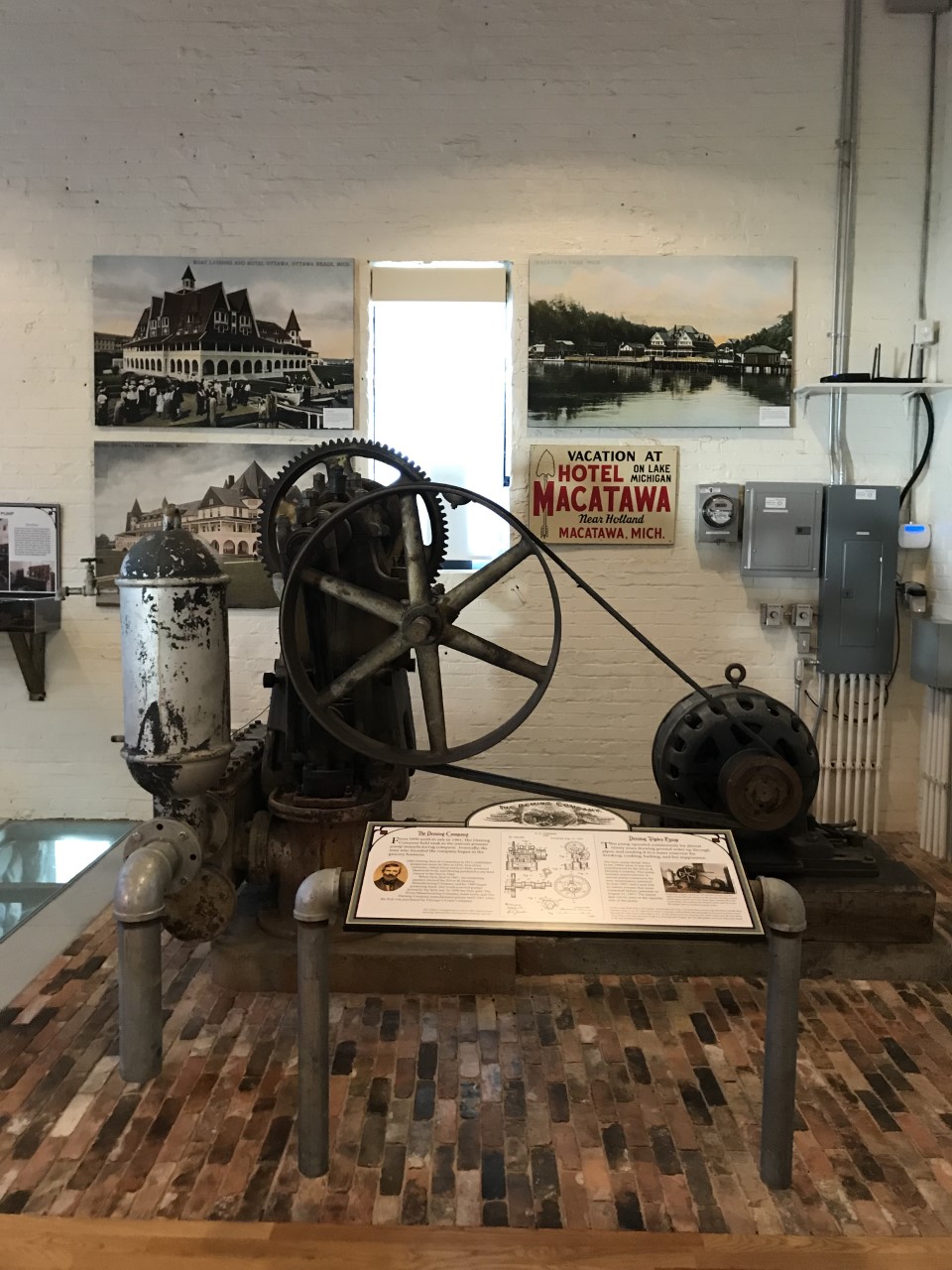 Last week I was asked to speak at the Pumphouse Museum as part of their summer lecture series. The warm, enthusiastic audience listened, on that beautiful summer evening, as I spoke about my book and my journey as a writer. The story of my writing career and how I got started is really the story of God’s faithfulness over the years. Each time I tell it, I’m reminded of all the hard times and all the little miracles along the way—as well as the lessons God taught me through each one. He used the ups and downs of my writing journey to draw me closer to Him, and so each time I tell my story, I’m really telling about His goodness and love.
Last week I was asked to speak at the Pumphouse Museum as part of their summer lecture series. The warm, enthusiastic audience listened, on that beautiful summer evening, as I spoke about my book and my journey as a writer. The story of my writing career and how I got started is really the story of God’s faithfulness over the years. Each time I tell it, I’m reminded of all the hard times and all the little miracles along the way—as well as the lessons God taught me through each one. He used the ups and downs of my writing journey to draw me closer to Him, and so each time I tell my story, I’m really telling about His goodness and love.